
Fuvahmulah Island: The Hidden Gem of the Maldives
Nestled in the heart of the Indian Ocean, Fuvahmulah Island offers a unique blend of natural beauty and rich culture. Unlike other Maldivian islands, Fuvahmulah stands alone in the Equatorial Channel, providing a diverse ecosystem that includes freshwater lakes, lush tropical vegetation, and stunning coral reefs. This island is a haven for nature lovers and adventure seekers alike. Explore the island's famous Thoondu beach, known for its rare white pebbles and crystal-clear waters. The beach is perfect for a relaxing day of sunbathing or a refreshing swim. Venture inland to discover the island's two freshwater lakes, Dhadimagi Kilhi and Bandaara Kilhi, which are home to various bird species and offer a peaceful retreat into nature. Fuvahmulah is also known for its vibrant local culture. The islanders are friendly and welcoming, and visitors can experience traditional Maldivian life through local cuisine, music, and crafts. Don't miss the chance to try 'garudhiya', a traditional fish soup, or 'fihunu mas', a spicy grilled fish dish. The island frequently hosts cultural festivals where tourists can enjoy local dances and music. For the adventurous, Fuvahmulah offers excellent diving and snorkeling opportunities. The island's coral reefs are teeming with marine life, including sharks, manta rays, and colorful fish. Whether you're a seasoned diver or a beginner, the underwater world of Fuvahmulah is sure to captivate you. Fuvahmulah Island is a perfect blend of natural wonders and cultural richness, making it a must-visit destination for anyone traveling to the Maldives.
Local tips in Fuvahmulah Island
- Visit Thoondu beach early in the morning to avoid crowds and enjoy the serene atmosphere.
- Hire a local guide to explore the island's freshwater lakes and learn about the unique flora and fauna.
- Sample local dishes at small eateries to get a true taste of Maldivian cuisine.
- Book diving and snorkeling trips in advance, as they can fill up quickly, especially during peak season.
- Bring cash, as some small shops and eateries may not accept credit cards.
Fuvahmulah Island: The Hidden Gem of the Maldives
Nestled in the heart of the Indian Ocean, Fuvahmulah Island offers a unique blend of natural beauty and rich culture. Unlike other Maldivian islands, Fuvahmulah stands alone in the Equatorial Channel, providing a diverse ecosystem that includes freshwater lakes, lush tropical vegetation, and stunning coral reefs. This island is a haven for nature lovers and adventure seekers alike. Explore the island's famous Thoondu beach, known for its rare white pebbles and crystal-clear waters. The beach is perfect for a relaxing day of sunbathing or a refreshing swim. Venture inland to discover the island's two freshwater lakes, Dhadimagi Kilhi and Bandaara Kilhi, which are home to various bird species and offer a peaceful retreat into nature. Fuvahmulah is also known for its vibrant local culture. The islanders are friendly and welcoming, and visitors can experience traditional Maldivian life through local cuisine, music, and crafts. Don't miss the chance to try 'garudhiya', a traditional fish soup, or 'fihunu mas', a spicy grilled fish dish. The island frequently hosts cultural festivals where tourists can enjoy local dances and music. For the adventurous, Fuvahmulah offers excellent diving and snorkeling opportunities. The island's coral reefs are teeming with marine life, including sharks, manta rays, and colorful fish. Whether you're a seasoned diver or a beginner, the underwater world of Fuvahmulah is sure to captivate you. Fuvahmulah Island is a perfect blend of natural wonders and cultural richness, making it a must-visit destination for anyone traveling to the Maldives.
When is the best time to go to Fuvahmulah Island?
Iconic landmarks you can’t miss
Pelagic Divers Fuvahmulah
Explore the vibrant underwater world of the Maldives at Pelagic Divers Fuvahmulah, where adventure and marine life await every diver.
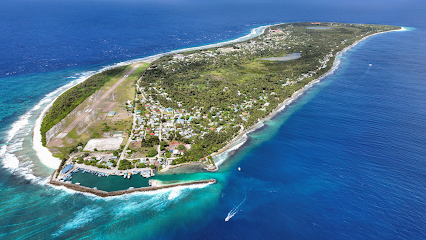
Extreme Dive Fuvahmulah
Explore the underwater wonders of the Maldives at Extreme Dive Fuvahmulah, where adventure meets expert guidance in a stunning aquatic paradise.
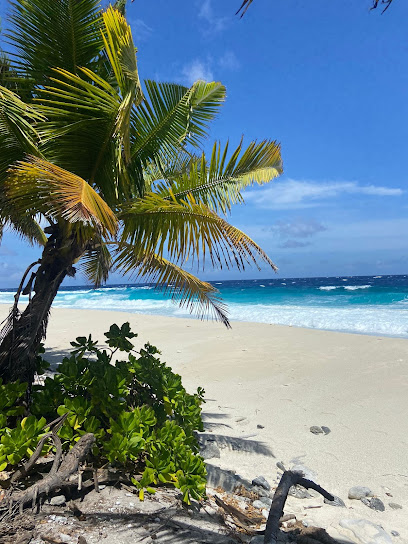
Fuvahmulah Dive School
Experience world-class diving and vibrant marine life at Fuvahmulah Dive School in the Maldives, where every dive unveils a new adventure.
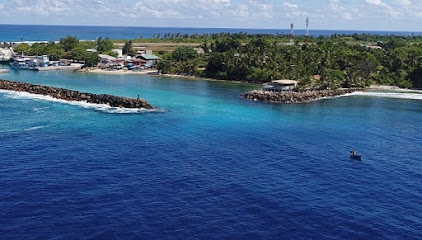
Fuvahmulah
Experience the unmatched beauty of Fuvahmulah, the only single-island atoll in the Maldives, with breathtaking landscapes and unique cultural treasures.
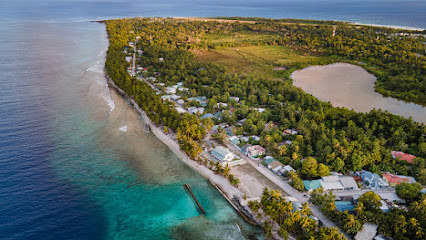
Zero Degree Residence, Fuvahmulah
Experience the essence of Maldivian culture and natural beauty at Zero Degree Residence in Fuvahmulah, your ideal guesthouse getaway.
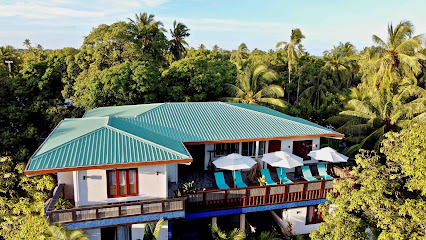
Pebbles Restaurant
Experience the flavors of the Maldives at Pebbles Restaurant in Fuvahmulah, where fresh seafood and local dishes await in a cozy setting.
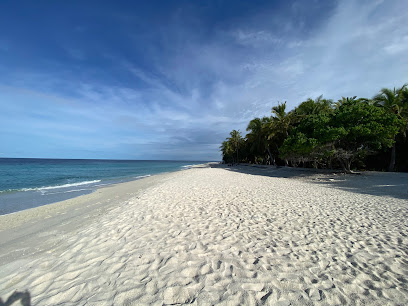
Fuvahmulah Airport
Discover the stunning beauty of Fuvahmulah, Maldives, through its welcoming domestic airport, your gateway to paradise and adventure.
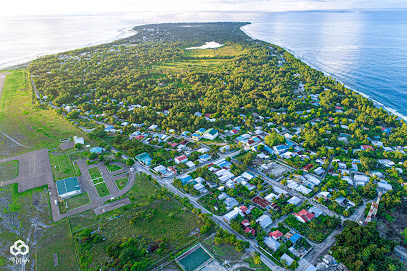
Fuvahmulah Central Dive Center
Experience the best of Maldives diving at Fuvahmulah Central Dive Center, where adventure meets the vibrant underwater world.
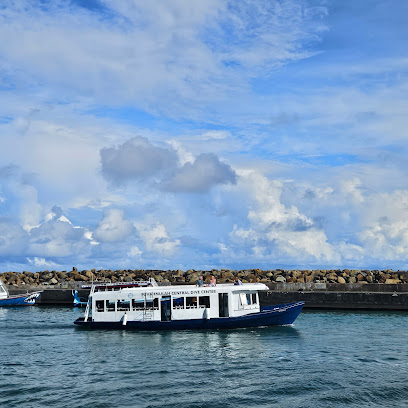
Thoondu
Discover Thoondu, a unique beach paradise in the Maldives with stunning sands, crystal-clear waters, and unforgettable sunsets.
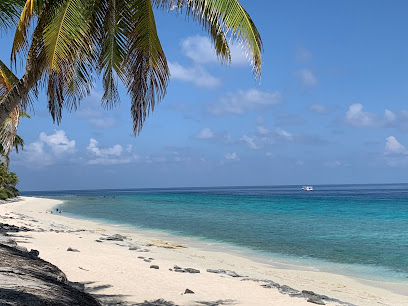
Maa Thundi
Experience the tranquility of Maa Thundi on Fuvamulah Island, where stunning landscapes and warm hospitality await every traveler.
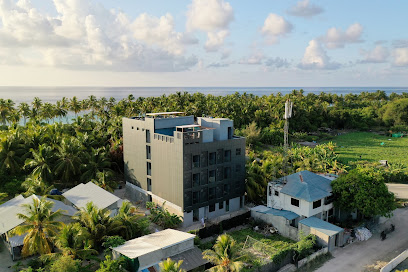
Fuvahmulah Scuba Club
Experience the unparalleled beauty of the Maldives at Fuvahmulah Scuba Club, where unforgettable diving adventures await in crystal-clear waters.
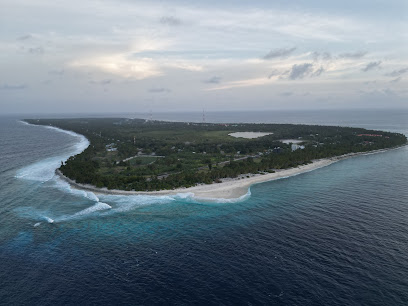
Fuvahmulah Nature Park
Explore the lush landscapes and vibrant wildlife of Fuvahmulah Nature Park, a serene escape in the heart of the Maldives.
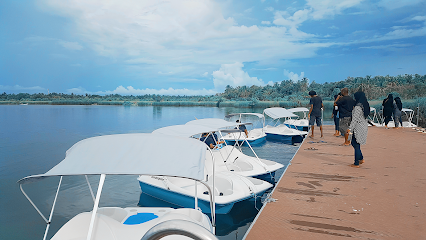
Havittha
Explore Havittha, a historical landmark in Fuvahmulah, Maldives, where rich heritage and stunning landscapes come together for an unforgettable experience.
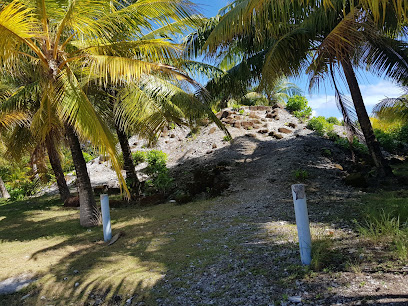
Kanbili Espresso
Discover Kanbili Espresso in Fuvahmulah: a serene café serving delightful coffee and snacks amidst the stunning landscapes of the Maldives.
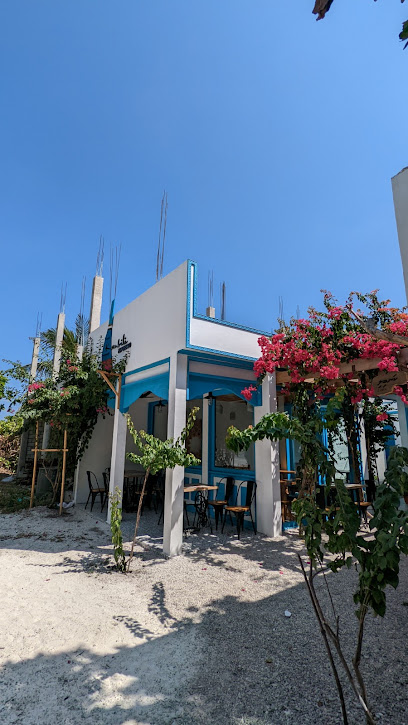
Tigershark Retreat
Experience the Best of Fuvahmulah at Tigershark Retreat – A Luxurious Resort Offering Unforgettable Diving Adventures and Island Serenity.
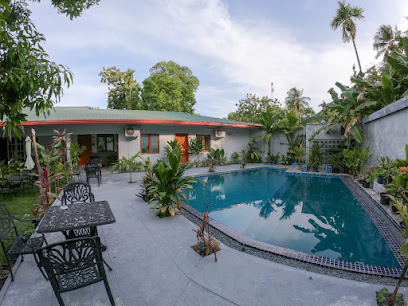
Unmissable attractions to see
Fuvahmulah Nature Park
Discover the natural beauty and tranquility of Fuvahmulah Nature Park, a perfect escape for nature lovers in the Maldives.
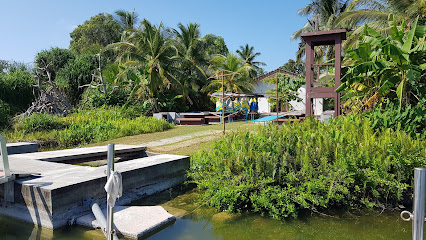
Havittha
Discover the historical significance of Havittha in Fuvahmulah, a captivating landmark that showcases the rich heritage and culture of the Maldives.
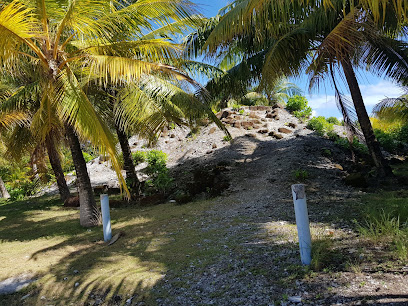
Geiymiskih Fannu
Experience the serene beauty of Geiymiskih Fannu, a hidden gem in Fuvahmulah, offering pristine beaches and vibrant marine life.
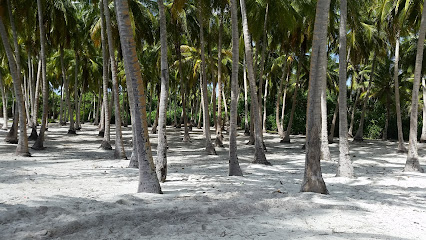
Koda Kilhi
Explore the tranquil beauty of Koda Kilhi, a pristine nature preserve in Fuvahmulah, where lush landscapes and diverse wildlife await.
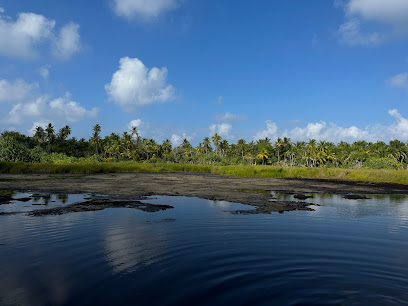
Kalho Akirigando (Black Stone Beach)
Explore the serene beauty of Kalho Akirigando, a hidden gem in the Maldives offering stunning black sands and rich historical significance.
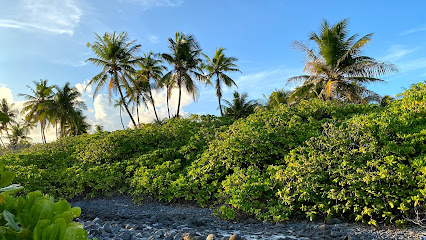
Shark Island Dive | Fuvahmulah
Experience unforgettable underwater adventures at Shark Island Dive in Fuvahmulah, a paradise for divers and adventure seekers in the Maldives.
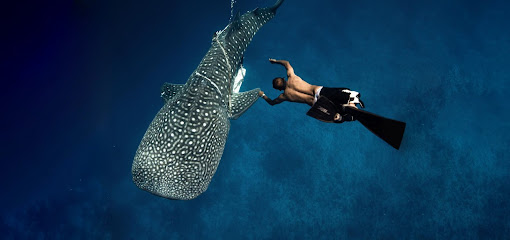
Maaneyre Athiri
Experience the enchanting beauty of Maaneyre Athiri Beach in Fuvahmulah, a tropical paradise for relaxation and adventure amidst stunning natural scenery.
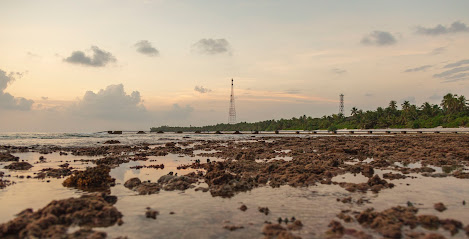
Rasgefannu Athiri
Experience the stunning beauty of Rasgefannu Athiri beach in Fuvahmulah, Maldives, where crystal-clear waters and vibrant marine life await.
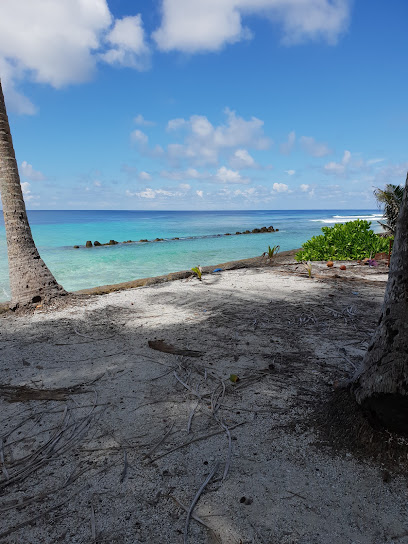
Hoadhadi Nature Park
Explore Hoadhadi Nature Park, a tranquil paradise in Fuvahmulah, perfect for nature lovers, offering beautiful trails and diverse wildlife.
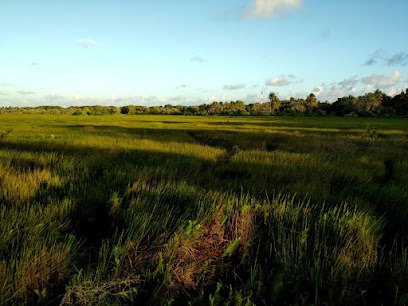
Boardwalk (Maalegan) - Fuvahmulah Nature Park
Discover the tranquil beauty and diverse wildlife of Fuvahmulah Nature Park, a hidden gem in the Maldives that celebrates nature's splendor.
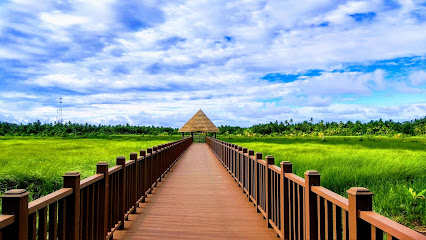
Tiger Zoo
Explore the Tiger Zoo in Fuvahmulah, a stunning wildlife sanctuary where adventure and nature intertwine amidst exotic animals and lush landscapes.
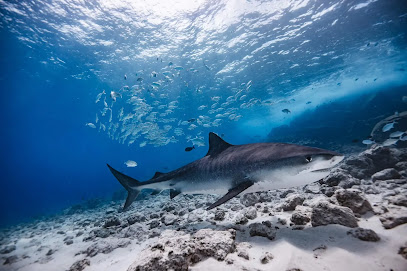
Dhiguvaandu Children's Park
Explore Dhiguvaandu Children's Park, a vibrant family-friendly oasis in Fuvahmulah, perfect for outdoor fun and relaxation under the Maldivian sun.
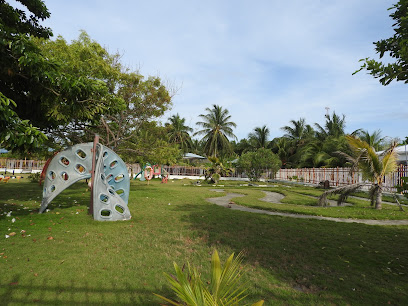
Kedeyre Veyo
Explore Kedeyre Veyo, a historical gem in Fuvahmulah, showcasing traditional Maldivian architecture and rich cultural heritage.
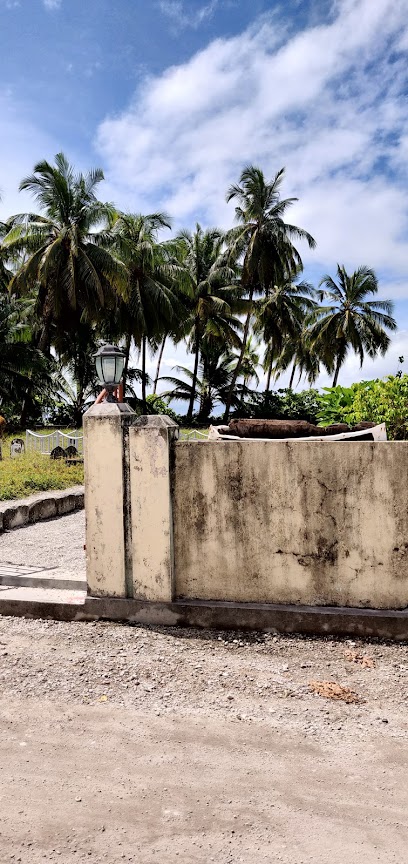
Maalegam Park
Experience the lush tranquility of Maalegam Park, a natural haven in Fuvahmulah, Maldives, perfect for relaxation and outdoor activities.
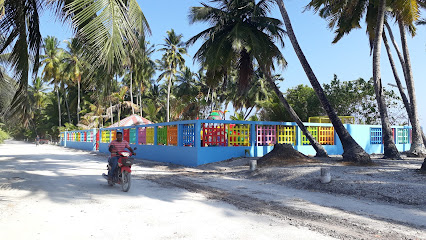
Odehe Park
Explore the natural beauty and tranquility of Odehe Park in Fuvahmulah, a perfect retreat for nature lovers and families seeking relaxation.
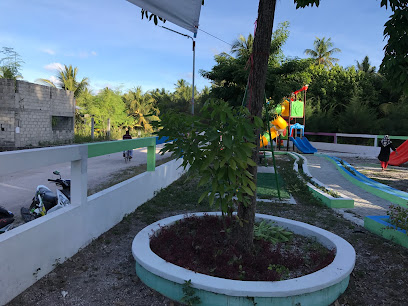
Essential places to dine
Real Breeze Restaurant
Discover the essence of Maldivian and Indian cuisine at Real Breeze Restaurant in Fuvahmulah - a culinary experience not to be missed.
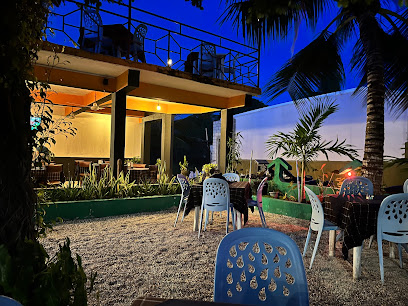
Royal Restaurant
Experience exquisite flavors at Royal Restaurant in Fuvahmulah - where local cuisine meets international flair in a cozy setting.
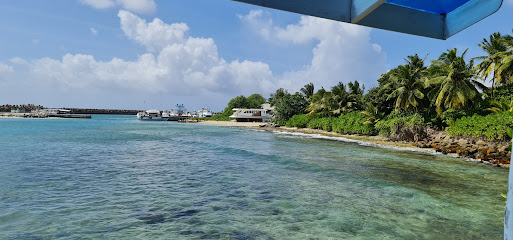
Cool Banana
Discover authentic Maldivian cuisine at Cool Banana in Fuvahmulah—where every dish tells a story.
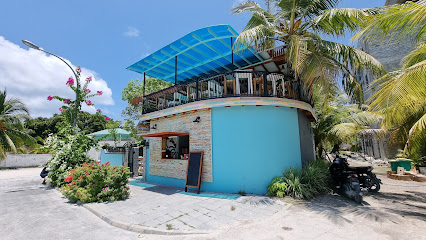
Pebbles Restaurant
Experience authentic Maldivian flavors at Pebbles Restaurant in Fuvahmulah – where every meal tells a story.
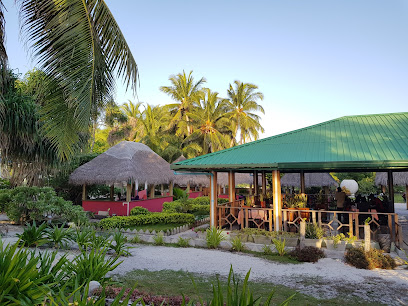
Moodige
Experience the flavors of Fuvahmulah at Moodige—where local cuisine meets culinary creativity in a charming setting.
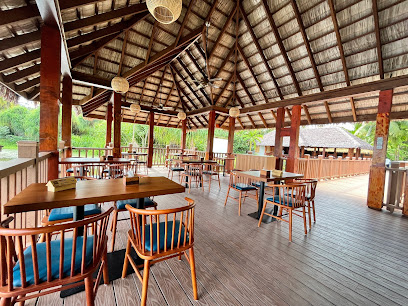
Monte Rosa
Experience authentic Maldivian cuisine at Monte Rosa in Fuvahmulah – where every meal tells a story.
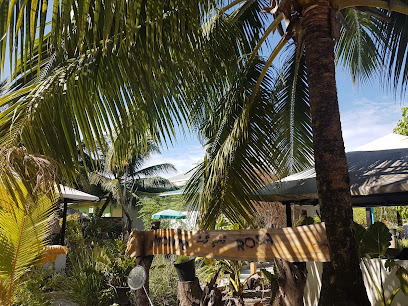
Highway29
Experience authentic Maldivian flavors at Highway29 – a culinary delight in Fuvahmulah with a welcoming atmosphere.
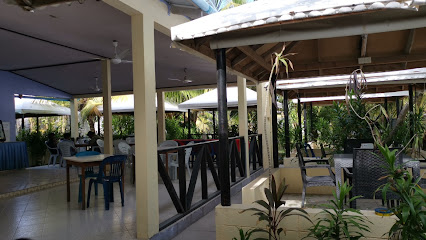
Highway Rest
Experience authentic Maldivian cuisine at Highway Rest in Fuvahmulah – where every meal tells a story.
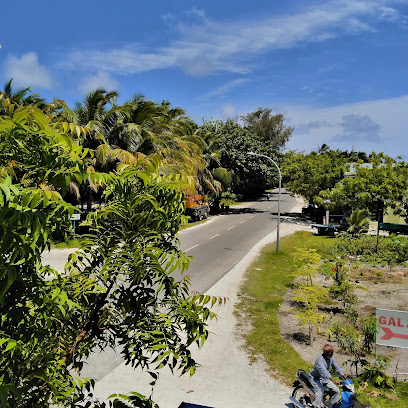
Galaxy Inn Restaurant
Experience authentic Maldivian cuisine at Galaxy Inn Restaurant in Fuvahmulah - where local flavors meet warm hospitality.
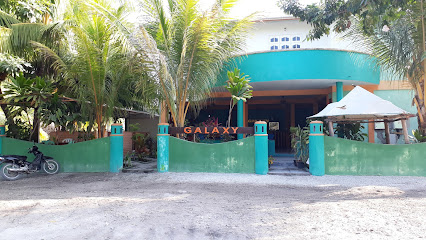
Pirates of the Maldivian
Discover exquisite flavors at Pirates of the Maldivian, where fresh seafood meets authentic Maldivian cuisine amidst stunning island views.
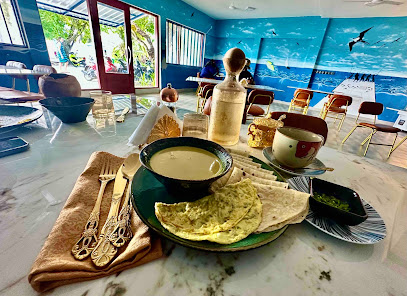
F&A Bakery & Café
Experience the flavors of Maldives at F&A Bakery & Café in Fuvahmulah – where local ingredients meet delightful baking.
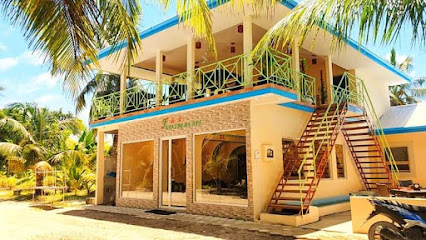
Summer Park Restaurant
Experience authentic Maldivian flavors at Summer Park Restaurant in Fuvahmulah – a must-visit culinary destination for every tourist.
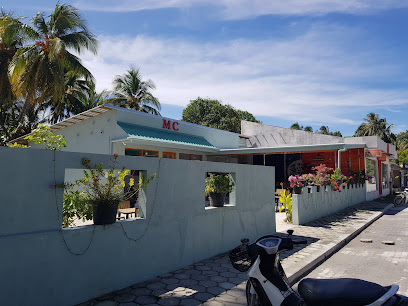
Maa Kuri Restaurant
Experience authentic Maldivian flavors at Maa Kuri Restaurant in Fuvahmulah – where every dish tells a story.
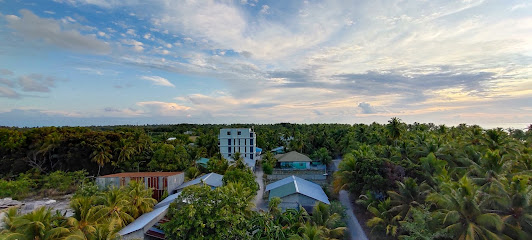
Sharkys’ Bay
Experience exquisite seafood and local delicacies at Sharkys' Bay in Fuvahmulah - a culinary delight with stunning ocean views.
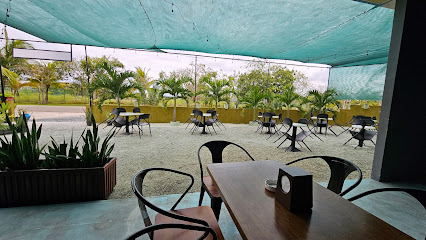
3R Cafe'
Discover culinary delights at 3R Cafe' in Fuvahmulah - where every meal is a celebration of flavor and island hospitality.
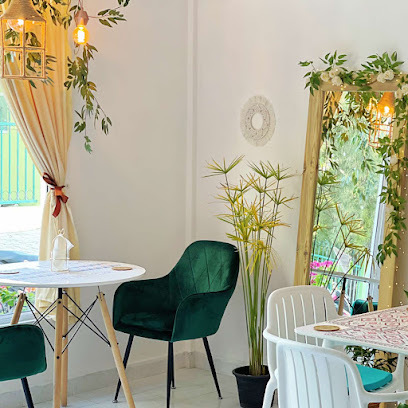
Markets, malls and hidden boutiques
Sithaana Store
Explore the vibrant Sithaana Store in Fuvahmulah, where local crafts meet modern shopping in a delightful atmosphere.
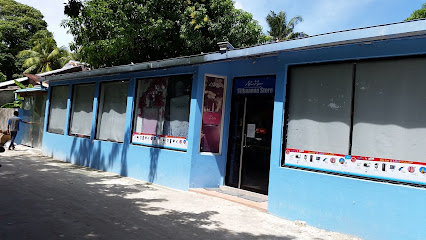
SIUU ARTS shop
Explore the artistic treasures of Fuvahmulah at SIUU ARTS, where unique handmade souvenirs reflect the vibrant culture of the Maldives.
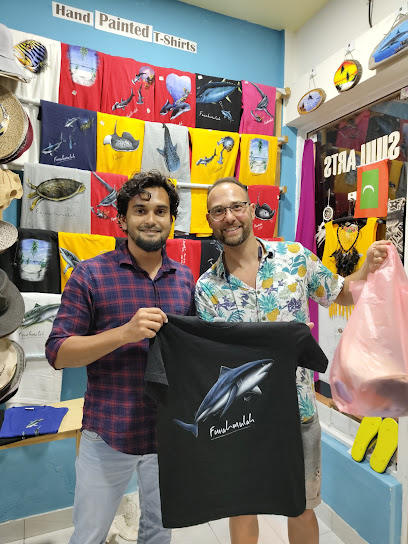
Hidden Pearls
Discover unique fashion finds and local designs at Hidden Pearls, a charming clothing store in Fuvahmulah, perfect for tourists seeking authentic Maldivian style.
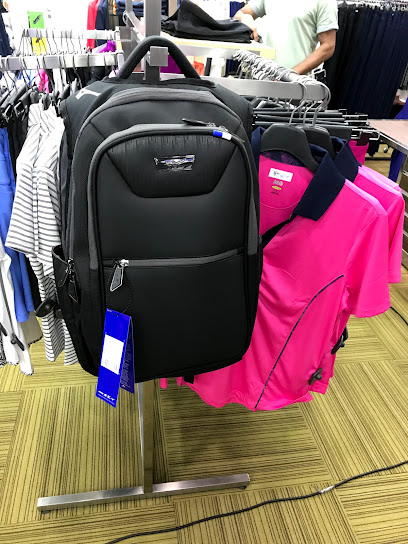
Trade Waves
Discover the essence of Fuvahmulah at Trade Waves, your go-to general store for local goods and unique souvenirs.
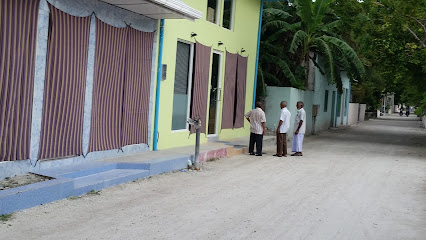
Adore Souvenir Shop
Discover the charm of Maldivian craftsmanship at Adore Souvenir Shop in Fuvahmulah, where every purchase tells a story.
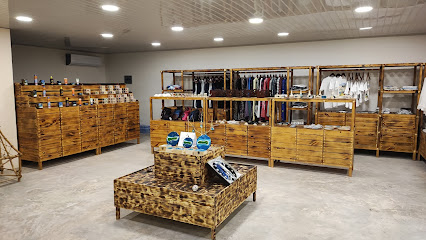
Mast
Shop at Mast in Fuvahmulah for trendy fashion that combines local charm and style, perfect for every occasion.
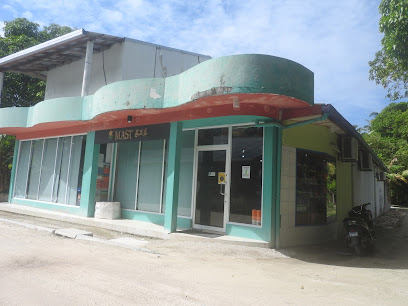
Naaz Store
Discover unique Maldivian crafts and essentials at Naaz Store, Fuvahmulah's local shopping gem, where culture meets convenience.
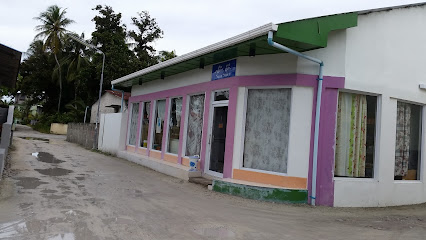
Flip Mart
Explore Flip Mart in Fuvahmulah for an authentic shopping experience filled with local products and warm hospitality.
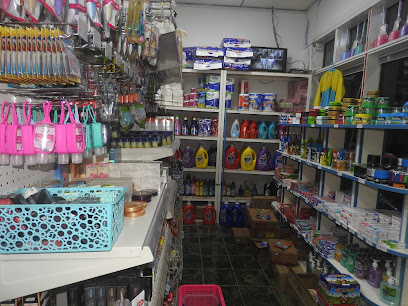
OCC Fuvahmulah
Explore the vibrant OCC Fuvahmulah, a must-visit store in the Maldives for unique crafts and local essentials.
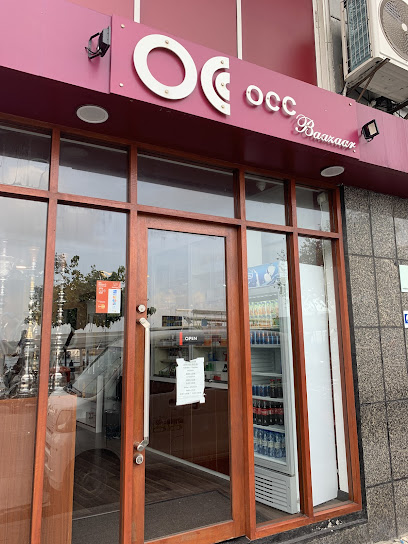
The Pantry Shop
Discover local flavors at The Pantry Shop in Fuvahmulah – your go-to grocery store for fresh produce and Maldivian specialties.
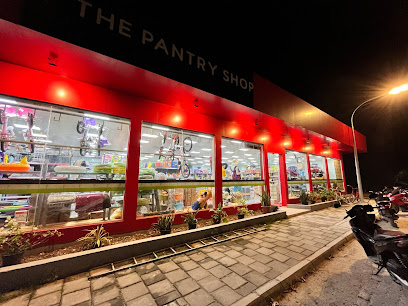
Fendi
Explore Fendi in Fuvahmulah for a luxurious shopping experience featuring high-end fashion and accessories that define elegance.
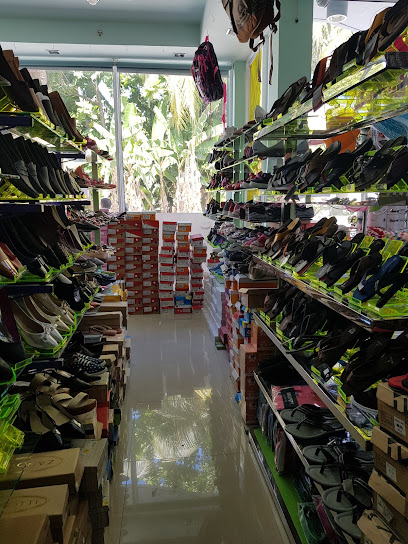
Mummy
Discover unique Maldivian craftsmanship at Mummy, your ultimate home goods store in Fuvahmulah for authentic souvenirs and decor.
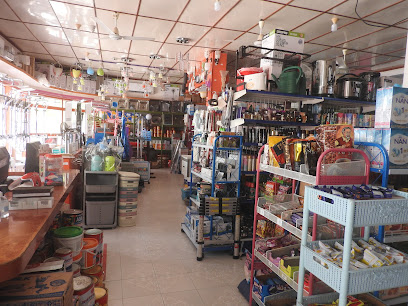
Thiththi
Discover the essence of Maldivian fashion at Thiththi, the premier women's clothing store in Fuvahmulah, offering unique styles and warm local hospitality.
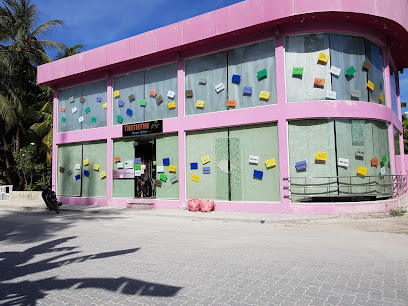
One eleven shop
Explore the charm of Fuvahmulah at One Eleven Shop, where unique local crafts and authentic Maldivian souvenirs await every traveler.
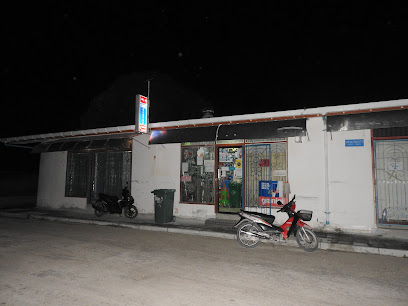
Fahi View
Discover the vibrant culture of Fuvahmulah at Fahi View, your go-to store for unique Maldivian products and souvenirs.
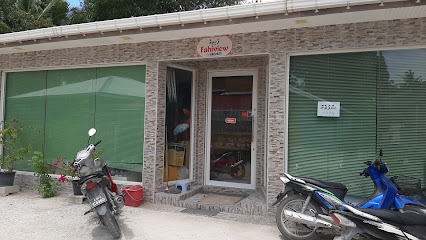
Essential bars & hidden hideouts
Real Breeze Restaurant
Discover the rich flavors of Maldivian cuisine at Real Breeze Restaurant, a culinary gem in Fuvahmulah offering unforgettable dining experiences.
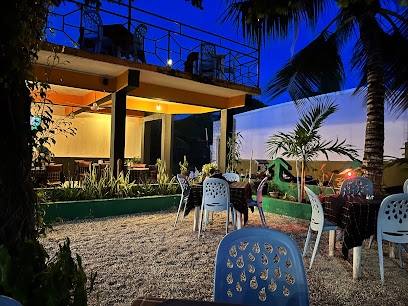
Royal Restaurant
Discover the exquisite flavors of Fuvahmulah at Royal Restaurant, where local cuisine meets international delights in a welcoming atmosphere.
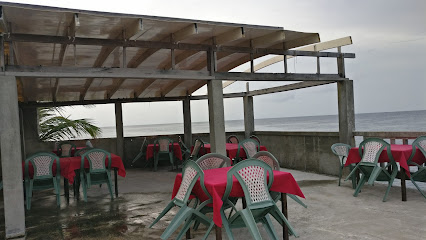
Cool Banana
Discover the vibrant flavors of Fuvahmulah at Cool Banana, a perfect blend of restaurant and café in the heart of the Maldives.
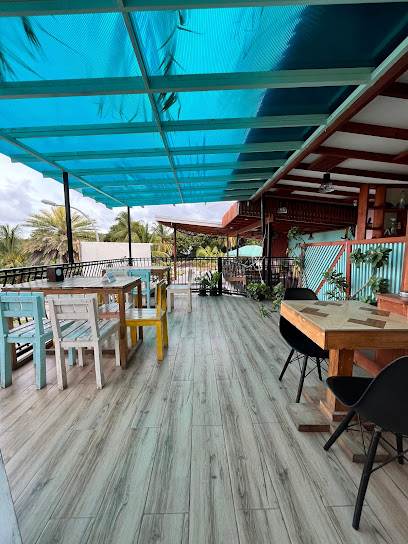
Pebbles Restaurant
Experience the culinary delights of Pebbles Restaurant in Fuvahmulah, Maldives, where local flavors meet international cuisine in a cozy setting.
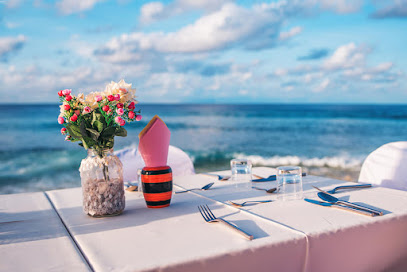
Moodige
Discover a culinary haven in Fuvahmulah at Moodige, where local flavors and international cuisine come together in a charming atmosphere.
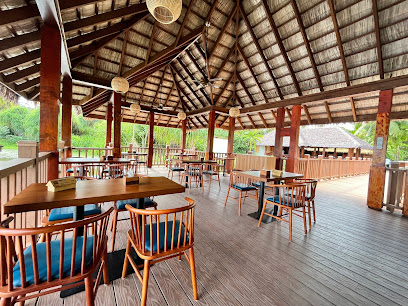
Monte Rosa
Discover the culinary treasures of Fuvahmulah at Monte Rosa, where local flavors and international cuisine blend in a warm and inviting atmosphere.
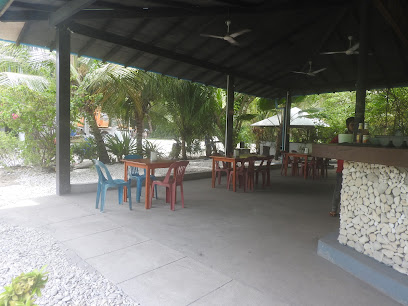
Cafe Eden
Discover the culinary charm of Cafe Eden in Fuvahmulah, where delicious food and a cozy atmosphere await every traveler.
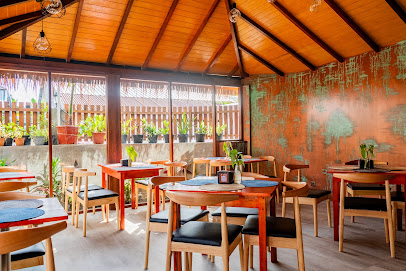
Highway29
Experience the vibrant flavors of Fuvahmulah at Highway29, where local cuisine meets international flair in a welcoming setting.
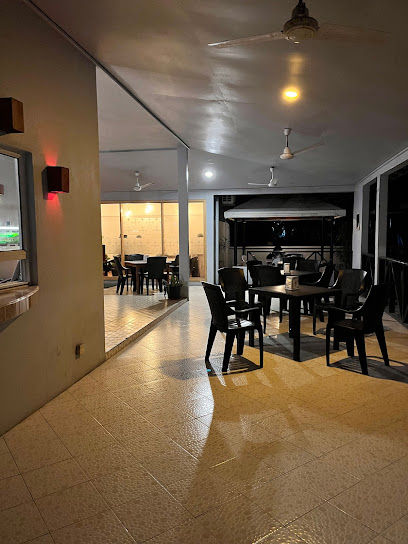
Highway Rest
Savor the best of Maldivian and international cuisine at Highway Rest, a delightful dining spot in Fuvahmulah, perfect for every traveler.
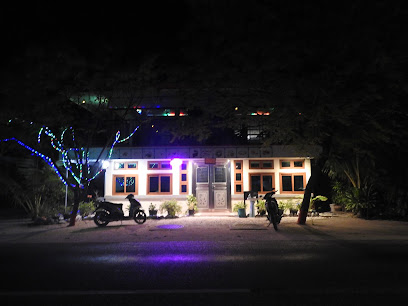
Galaxy Inn Restaurant
Explore the culinary delights of Fuvahmulah at Galaxy Inn Restaurant, where authentic Maldivian flavors meet warm hospitality.
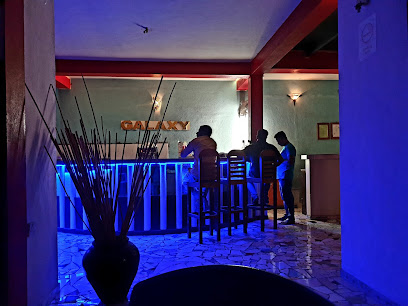
Shark Lounge
Experience the charm of Fuvahmulah at Shark Lounge, where comfort meets local culture in the heart of the Maldives.
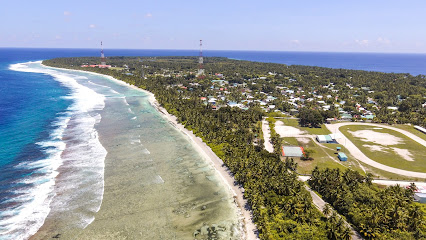
Summer Park Restaurant
Discover the flavors of Fuvahmulah at Summer Park Restaurant, where fresh ingredients meet warm hospitality in a stunning island setting.
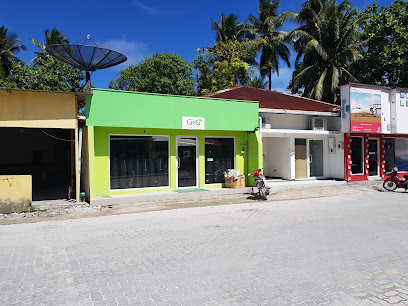
Pirates of the Maldivian
Discover the rich culinary heritage of the Maldives at Pirates of the Maldivian, a must-visit restaurant in Fuvahmulah.
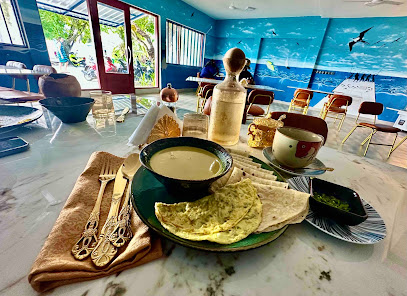
One Up
Explore the cozy charm of One Up in Fuvahmulah, where delicious coffee meets local flavors in a warm, inviting atmosphere.
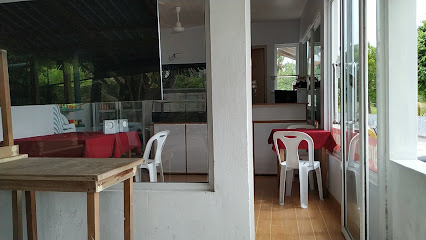
History of Fuvahmulah Island
-
Fuvahmulah Island, located in the southern Maldives, is a unique and culturally rich destination. Known for its singular geography, it's the only island that forms an atoll by itself. Its diverse ecosystem, historical sites, and the vibrant local culture make it a fascinating subject for history enthusiasts and travelers alike.
-
Historical evidence suggests that Fuvahmulah has been inhabited for over a millennium. Archaeological finds, including ancient pottery and artifacts, indicate the presence of early settlers who engaged in fishing and agriculture. These early inhabitants laid the foundation for the island's rich cultural heritage.
-
Before the advent of Islam in the 12th century, Buddhism played a significant role in the cultural and religious life of Fuvahmulah. Remnants of ancient stupas and Buddhist artifacts have been discovered, hinting at the island's spiritual legacy during this period.
-
The arrival of Islam in the Maldives during the 12th century marked a pivotal moment in Fuvahmulah's history. The island embraced the new religion, leading to the construction of mosques and the establishment of Islamic traditions. This period saw the integration of Islamic architecture and cultural practices into daily life.
-
Fuvahmulah, like the rest of the Maldives, experienced interactions with colonial powers, including the Portuguese, Dutch, and British. Although the island itself was relatively untouched by direct colonial rule, these encounters influenced trade, politics, and cultural exchanges, leaving an indelible mark on its history.
-
Historically, Fuvahmulah maintained a degree of autonomy, governed by local chieftains known as 'Atoll Chiefs'. These leaders played a crucial role in the administration, justice, and social organization of the island, ensuring the preservation of its unique cultural identity.
-
Fuvahmulah is renowned for its vibrant cultural festivals, which reflect its rich heritage. The island celebrates traditional events such as 'Eid al-Fitr' and 'Eid al-Adha' with great fervor. Unique local festivals, like the 'Bodu Mas' and 'Maahefun', showcase traditional music, dance, and cuisine, offering a glimpse into the island's lively cultural landscape.
-
In recent decades, Fuvahmulah has witnessed significant modernization and development. Infrastructure improvements, tourism growth, and advancements in education and healthcare have transformed the island. Despite these changes, Fuvahmulah continues to preserve its historical sites and cultural traditions, blending the old with the new.
Fuvahmulah Island Essentials
-
Fuvahmulah Island is located in the Maldives. The nearest international airport is Velana International Airport in Malé. From Malé, you can take a domestic flight to Fuvahmulah Airport, which takes approximately 1 hour. Alternatively, you can opt for a speedboat transfer, which takes around 6 to 8 hours, depending on sea conditions.
-
Fuvahmulah Island is relatively small, and most areas can be explored on foot or by bicycle. For longer distances, you can use local taxis or rent a scooter. There are no public buses on the island, but private transport services are available. Renting a bicycle or scooter is a popular option for tourists to get around conveniently.
-
The official currency is the Maldivian Rufiyaa (MVR). While larger hotels and some restaurants accept credit cards, it is advisable to carry cash for smaller establishments and local markets. ATMs are available on the island, but it is wise to withdraw sufficient cash before arrival, especially if you plan to visit remote areas.
-
Fuvahmulah Island is generally safe for tourists. However, it is advisable to take standard precautions such as avoiding isolated areas at night and keeping an eye on your belongings. There are no specific high-crime areas targeting tourists, but always stay vigilant and aware of your surroundings.
-
In case of emergency, dial 119 for immediate assistance. The local police station and medical facilities are available on the island. It is recommended to have travel insurance that covers medical emergencies. There are pharmacies on the island where you can purchase over-the-counter medications for minor health issues.
-
Fashion: Do dress modestly, especially when away from the beach. Avoid wearing revealing clothing in public areas. Religion: Do respect local customs and traditions. When visiting mosques, ensure you cover your head and dress conservatively. Public Transport: Do be respectful to drivers and other passengers. Don't eat or drink on public transport. Greetings: Do greet people with a smile and a slight nod. Handshakes are common but not necessary. Eating & Drinking: Do try local Maldivian dishes and seafood. Don't refuse food offered by locals, as it is considered impolite.
-
To experience Fuvahmulah Island like a local, visit the local markets where you can buy fresh produce and traditional Maldivian goods. Engage with locals, as they are often friendly and willing to share stories about the island's history and culture. Don't miss exploring the island's unique geographical features, such as the freshwater lakes and the Thoondu beach with its pebble sand. For a unique experience, try fishing with the local fishermen or join a traditional Maldivian cooking class.
Trending Landmarks in Fuvahmulah Island
Nearby Cities to Fuvahmulah Island
-
Things To Do in Dhigurah
-
Things To Do in Fulidhoo
-
Things To Do in Guraidhoo
-
Things To Do in Malé
-
Things To Do in Hulhumalé
-
Things To Do in Ukulhas
-
Things To Do in Huraa
-
Things To Do in Thulusdhoo
-
Things To Do in Thoddoo
-
Things To Do in Hikkaduwa
-
Things To Do in Galle
-
Things To Do in Unawatuna
-
Things To Do in Kanyakumari
-
Things To Do in Bentota
-
Things To Do in Mirissa










